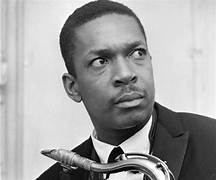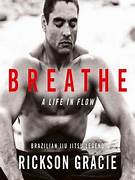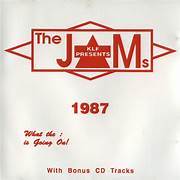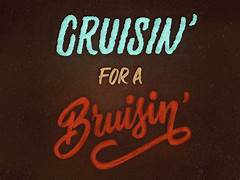Tags
1980s, banned, Frankie Goes to Hollywood, One Hit Wonder, relax, top ten hit, Two Tribes, Welcome to the Pleasuredome
Relax is the debut single by English synth pop band Frankie Goes to Hollywood, released in the United Kingdom by ZTT Records in 1983.
The hit version, produced by Trevor Horn and featuring the band along with other musicians, entered the UK top 75 Singles chart in November 1983 but did not crack the top 40 until early January 1984. One of the decade’s most controversial and most commercially successful records, “Relax” eventually sold a reported two million copies in the UK alone, easily ranking among the ten biggest selling singles in the UK. It remained in the UK top 40 for 37 consecutive weeks, 35 of which overlapped with a radio airplay ban by the BBC (owing to lyrics perceived as overtly sexual).
In June 1984, bolstered by the instant massive success of the band’s follow-up single Two Tribes, the single re-entered the top ten for a further nine weeks, including two spent at #2 (behind Two Tribes). At that time, Frankie Goes to Hollywood were the only act apart from the Beatles and John Lennon to concurrently occupy the top two positions on the chart. Several 12 inch single versions (and the “Frankie Say Relax” T-shirt craze) further fed the Relax phenomenon. The single re-entered the UK top 75 in February 1985 and, more successfully, in October 1993, when it spent three weeks in the top ten.
In the United States, Relax was also comparatively slow in reaching its chart peak. Released in March 1984, albeit with a different mix and nearly a minute shorter in length, the single stalled at #67 on ‘Billboard‘s Hot 100 in May during a seven-week run, but it ranked number one for the year by Los Angeles alternative rock station KROQ, as voted for by listeners. In January 1985, a release of Relax that was far more similar to the UK hit version entered the Hot 100 at #70, and in March it reached #10 during its 16-week run. In January 1989, the single was certified Gold by the RIAA.
In February 1985, the record was awarded Best British Single of 1984 at the Brit Awards, and Frankie Goes to Hollywood won Best British Newcomer. A version of the song features on Frankie Goes to Hollywood’s debut album Welcome to the Pleasuredome, released in October 1984.







